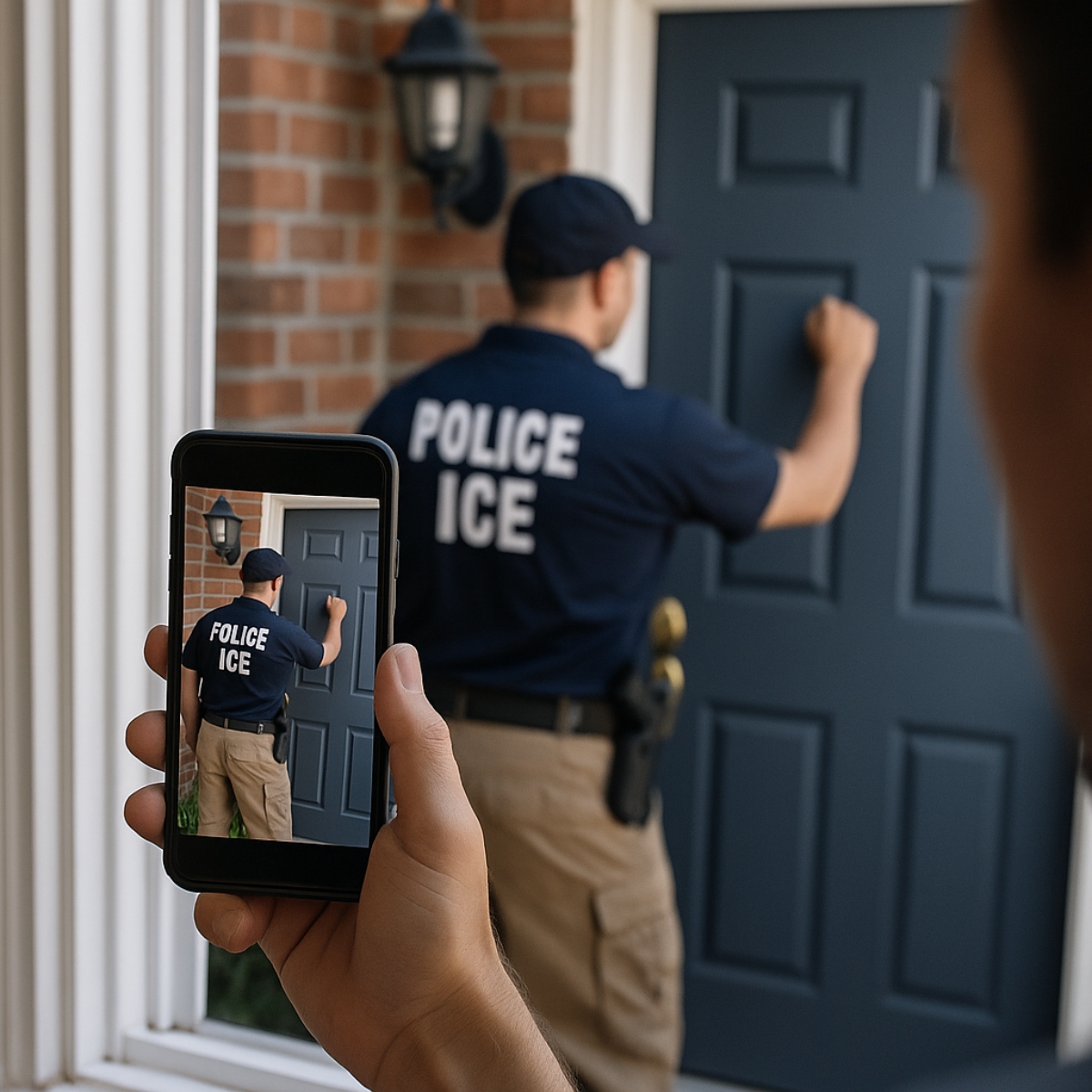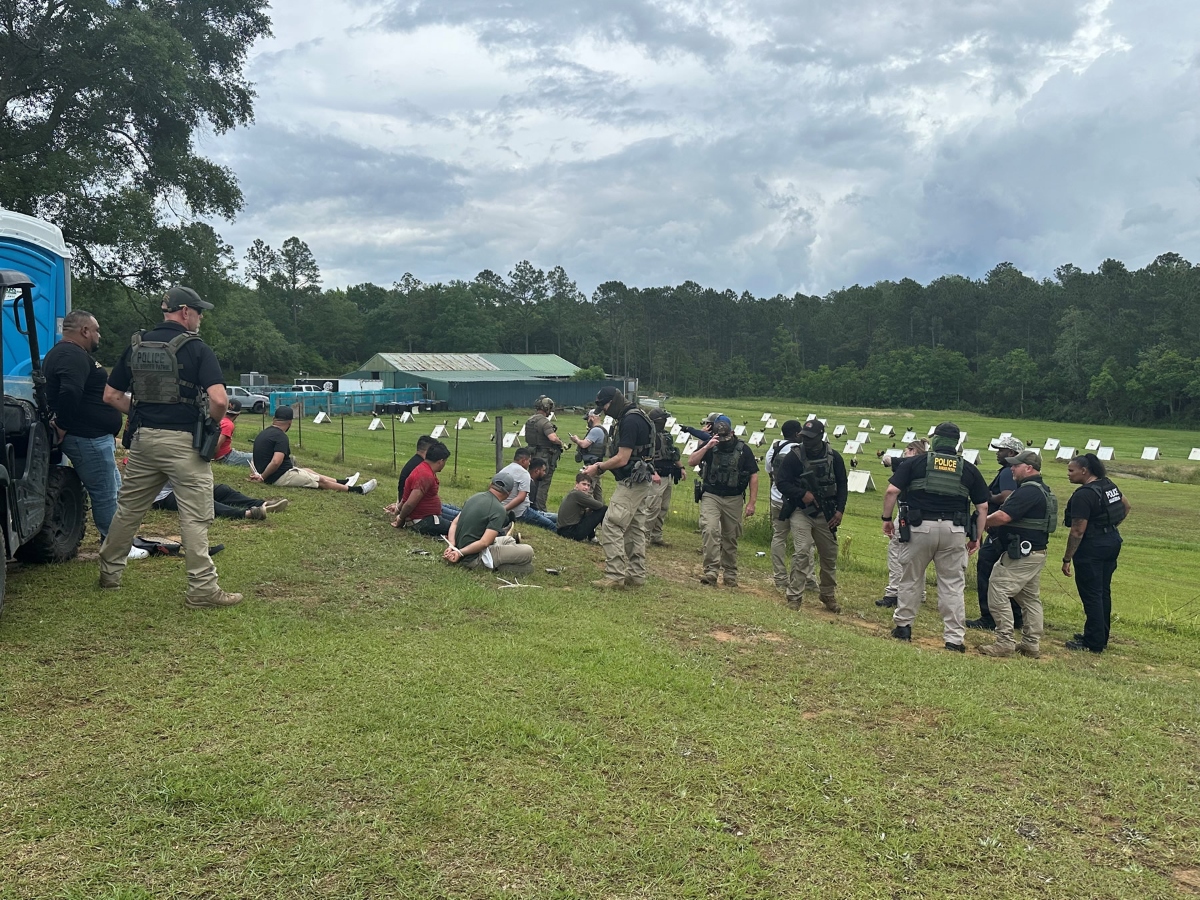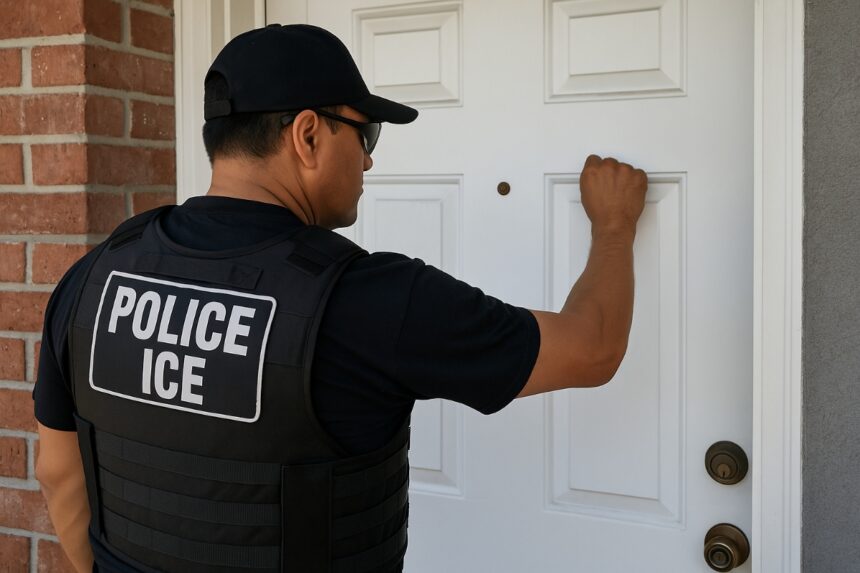In 2025, the Trump administration has strengthened immigration enforcement measures that are generating new questions among Hispanic communities. One of them: can ICE enter your home or work without a warrant?
The general answer is still no, but there are specific areas where they can do so legally. And that is generating concern among immigrants in several states. Here we explain when ICE needs a warrant… and when it doesn’t.
Where ICE can’t enter without a warrant

In general, ICE needs a warrant signed by a judge in order to enter:
A private home
A rented hotel room
A room in a shared apartment
Gated property (with door or gate)
If ICE comes to your house, you are not obligated to open the door. You can ask them to pass the warrant underneath or show it from a window.
Places ICE can enter — no warrant needed

Pursuant to the Immigration and Nationality Act and recent interpretations under the current administration, ICE does not need a warrant to enter or detain persons in the United States:
Public spaces, such as streets, parks, transportation stations, fairgrounds or squares
Businesses open to the public, such as stores, restaurants or laundromats
Government buildings or courthouses
Border areas or immigration checkpoints
Temporary residences that are not locked or declared private
Example: If you live in a trailer or apartment without a private door, ICE could argue that it is a “semi-open” space.
What is happening in 2025?
Organizations such as the ACLU and RAICES have documented an increase in warrantless arrests in states such as Texas, Florida and Georgia.
This occurs primarily in rural areas, neighborhoods with a high Latino presence, and locations near bus stations.
It has also been reported that ICE is using drones and mobile cameras to monitor areas where immigrants live.
What can you do?
Do not open the door without an order signed by a judge.
Keep calm and record (if it is safe to do so).
Do not lie or sign anything without legal advice.
If you are in a public space, you may remain silent and ask to speak to a lawyer.
Hay zonas específicas donde ICE sí puede entrar legalmente sin una orden judicial














